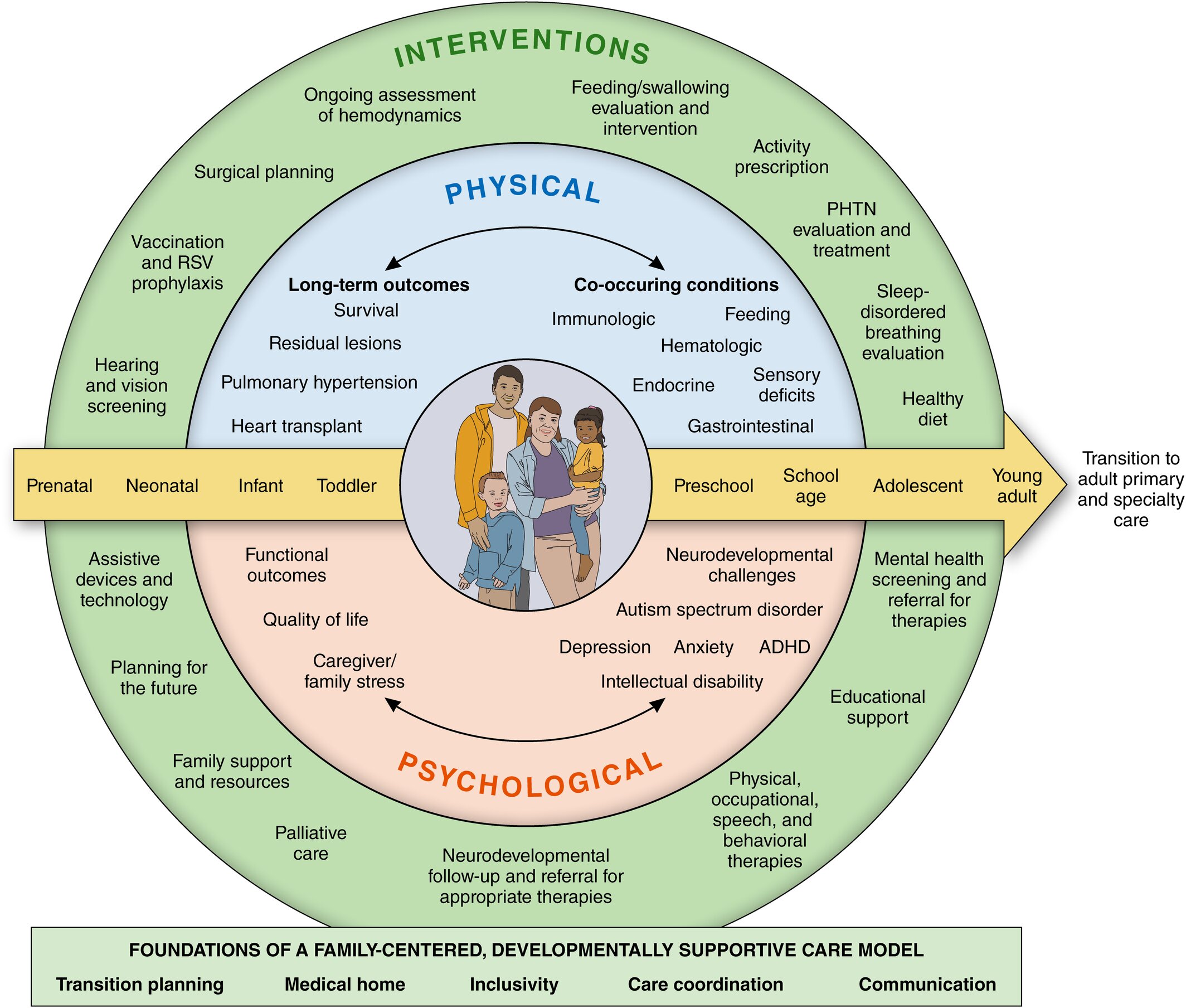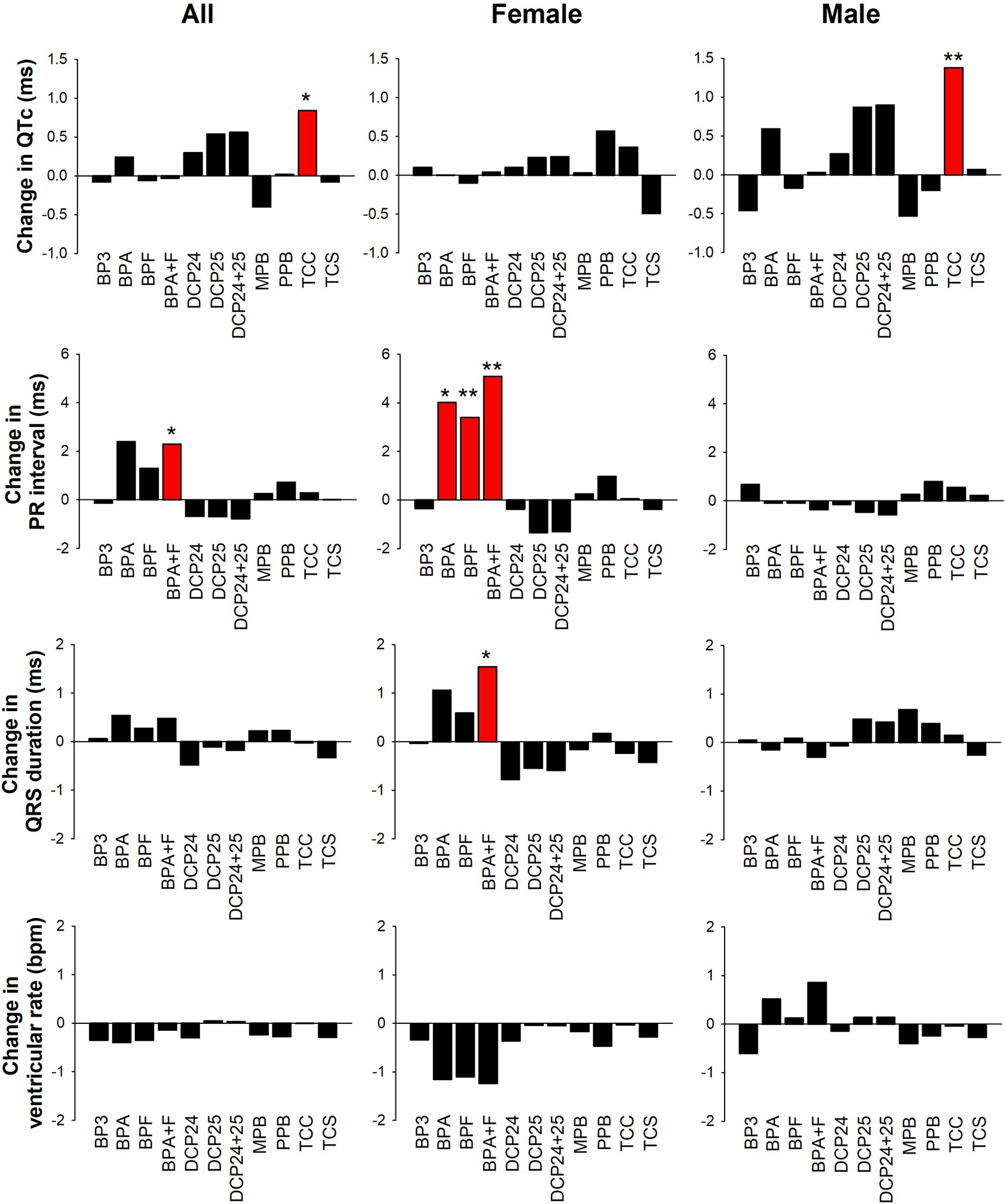
A coordinated, multidisciplinary health care team to address the specific physical, psychological and developmental needs of children with Trisomy 21, or Down syndrome, and congenital heart disease may help children with these conditions lead longer and more productive lives, according to a new scientific statement from the American Heart Association.
The scientific statement, “Trisomy 21 and Congenital Heart Disease: Impact on Health and Functional Outcomes from Birth Through Adolescence,” is published today (Sept. 12) in the Journal of the American Heart Association.
Trisomy 21, also known as Down syndrome, is a genetic condition that occurs when a person has an extra copy of chromosome 21. According to the American Heart Association’s 2018 scientific statement on the genetic basis for congenital heart disease, Down syndrome is the most common chromosome abnormality, with approximately 5,300 infants born with Down syndrome in the U.S. each year.
About 35%–50% of children with Down syndrome are also affected by congenital heart disease. About 70% of congenital heart disease conditions in children with Down syndrome present as some type of atrial septal defect or ventricular septal defect of the heart, often referred to as “a hole in the heart.”
Pulmonary hypertension and single ventricle heart disease are two known cardiovascular conditions that may reduce life expectancy in individuals with Down syndrome. Conditions affecting other body systems, including respiratory, endocrine, gastrointestinal, hematological, neurological and sensory systems, may interact with cardiovascular health concerns and lead to adverse effects for children with congenital heart disease and Down syndrome.
Improvements in diagnostic, medical and surgical interventions for cardiovascular disease over the past several decades have resulted in greatly improved survival for infants and children with congenital heart disease including those with Down syndrome.
Current research on survival in children with congenital heart disease indicates that more than 97% of children with congenital heart disease can be expected to reach adulthood, highlighting the need for multidisciplinary care throughout their lifetime.
Neurodevelopmental and functional challenges may also affect quality of life for children with Down syndrome and congenital heart disease. About 75% of children with these conditions experience feeding and swallowing problems as infants, increasing the risk of malnutrition and failure to thrive, which would affect physical and neurologic development. They also often face lifelong respiratory problems and hypothyroidism (an underactive thyroid; the thyroid produces important hormones that help regulate many functions in the body).
Vision and hearing impairments (sensory processing disorders) are also common among children with Down syndrome and may impact development of language and communication, as well as cognitive and social behavior skills. Psychological conditions, including autism spectrum disorder, attention deficit/hyperactivity disorder, anxiety and depression, are also common in children with Down syndrome as well as children with congenital heart disease.
Social determinants of health may affect outcomes in children with Down syndrome and congenital heart disease because intellectual limitations and chronic health conditions often contribute to discrimination, bias, inequity, education and socioeconomic status.
Physical, occupational, speech and behavioral therapies are integral in health care plans for children with Down syndrome and congenital heart disease. Early speech intervention is important to improve communication and autonomy, while physical and occupational therapy are focused on strengthening gross and fine motor skills, increasing independence in activities of daily living, and supporting social skills and sensory integration.
A comprehensive “medical home” with primary and specialty care that includes a multidisciplinary team of professionals is advised to support care continuity, family-centered care and advocacy. Effective care coordination improves health care access and reduces delays in care, hospitalizations and health care costs. It can also result in enhanced care satisfaction and improvements in overall health outcomes.
With appropriate support and resources from the multidisciplinary care team, community, school and family, children with Down syndrome and congenital heart disease have opportunities to live fulfilling and productive lives with independence. It is important that the transition to adulthood includes assessment of their needs, skills and decision-making capacity.
Future research focused on reducing the burden of these conditions is needed to improve functional outcomes and quality of life for children with Down syndrome and congenital heart disease.
The statement was written on behalf of the American Heart Association’s Pediatric Cardiovascular Nursing Committee of the Council on Cardiovascular and Stroke Nursing, the Council on Clinical Cardiology, the Council on Genomic and Precision Medicine, and the Council on Cardiovascular Radiology and Intervention.
American Heart Association scientific statements promote greater awareness about cardiovascular diseases and help facilitate informed health care decisions. Scientific statements outline what is currently known about a topic and what areas need additional research. While scientific statements inform the development of guidelines, they do not make treatment recommendations.
More information:
Jennifer K. Peterson et al, Trisomy 21 and Congenital Heart Disease: Impact on Health and Functional Outcomes From Birth Through Adolescence: A Scientific Statement From the American Heart Association, Journal of the American Heart Association (2024). DOI: 10.1161/JAHA.124.036214
Citation:
Coordinated care important for children with Down syndrome and congenital heart disease, say researchers (2024, September 12)
retrieved 13 September 2024
from https://medicalxpress.com/news/2024-09-important-children-syndrome-congenital-heart.html
This document is subject to copyright. Apart from any fair dealing for the purpose of private study or research, no
part may be reproduced without the written permission. The content is provided for information purposes only.


